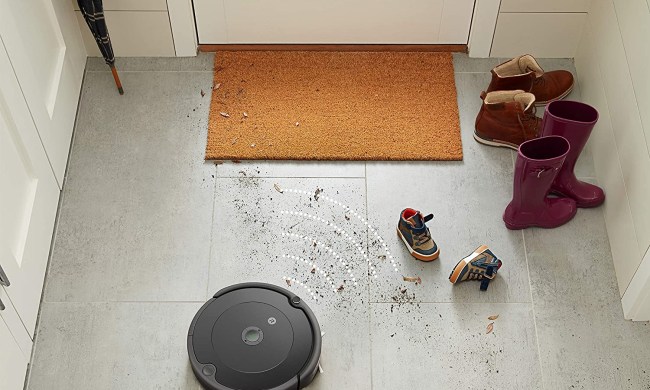
The smart mirror uses cameras to capture faces, while augmented reality software allows users to try on makeup in real time, including cosmetics you already own to avoid odd combinations or products not yet in your vanity as a sort of “try before you buy” option. The mirror will also make personalized product recommendations, the developers say, as well as, of course, sharing looks to social media.
Besides just the virtual makeup samples, the mirror also uses sensors to detect the lighting in the room — since previewing makeup in natural light and artificial light can result in slightly different looks. Dual LEDs also help create ideal lighting for previewing the look, much like a traditional Hollywood vanity mirror.
“We are excited to partner with Element Electronics bringing the vanity mirror of the future into the home,” Linda Smith, founder and CEO of FaceCake, said in a press release. “An intuitive, smart mirror with professional quality lighting and an accessible price, it’s the makeup mirror only dreamed of before with Augmented Reality features that allow for virtual makeovers, personalized recommendations, social sharing, and shopping from the comfort of your own home.”
The companies expect to begin shipping the mirror in the spring.
Pricing details have not yet been released, however, Element Electronics is a budget TV brand that sells electronics to Walmart, Target and Meijer customers — suggesting that the partnership will help put the FaceCake NextGen vanity mirror at a lower price than other similar smart mirrors.



